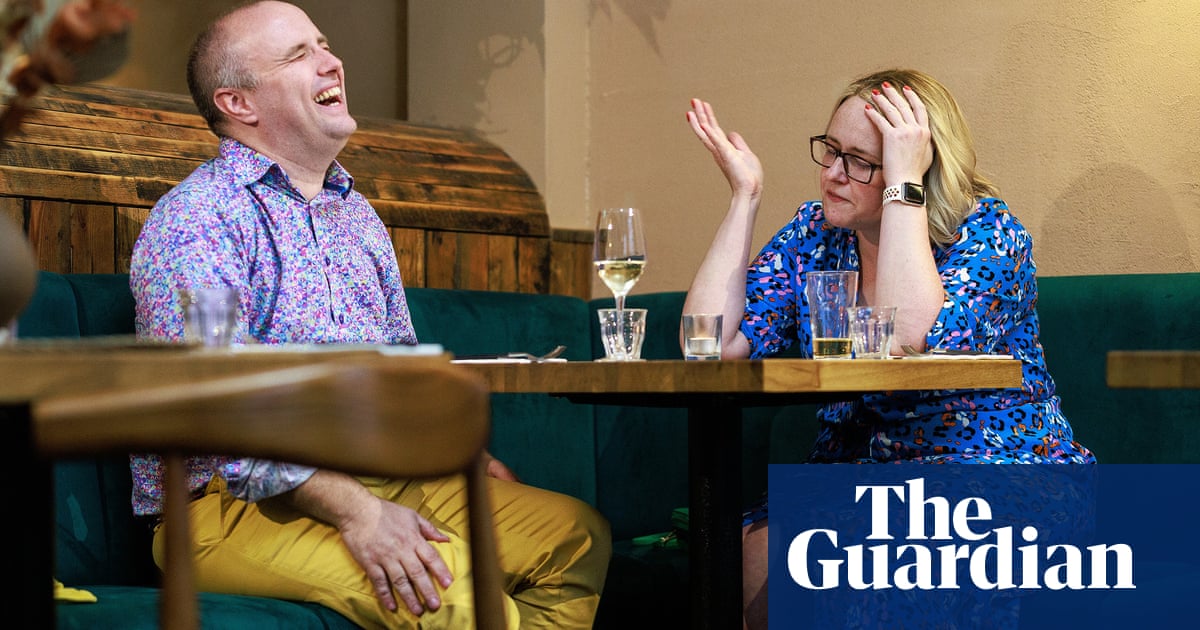
When we set out to make a documentary about The Jeremy Kyle Show, we weren’t planning on doing an exposé. We set out to make something similar to our documentary about Jade Goody – more of a social history of Britain, looking at how quickly our values have changed in a very short space of time.
But, then we started doing research and people’s stories made us realise really quickly that there was a different tale to tell – one that people were burning to tell. It’s about the pattern of misery and of failings on that series, prior to that fateful recording and Steve Dymond’s death. It’s a story where – as one of the people whose lives have been affected by the show says in our documentary – there were so many warnings.
They begin right at the start of the series. In 2005, a couple – Paul and Erica Pawson – went on the show because they were having marriage problems. Paul Pawson admits in the documentary that he cheated on Erica – and they went on the show in the hope that it would help them patch up their marriage. The opposite happened – they were turned against one another. Kyle asked Erica if she wanted Paul to leave her, and she ended up saying yes. Paul did leave her and days later she killed herself – the show never aired. For us, that just felt so similar to Steve Dymond’s story. You could see the similarities there.
That began to make us dig further, to try to understand more about the culture on the two programmes’ production team. We contacted more than 200 people who worked on The Jeremy Kyle Show over the years, and what they sketched out for us is a catalogue of exploitation – both of guests and of junior staff on the series. They told us of a culture whereby guests were manipulated – and where staff were made to feel like their job, first and foremost, was to provoke conflict on stage for the show.
ITV refutes this, of course. It says the premise behind the show – which it stands by – is that it was there to help people. And the programme did have duty of care processes and aftercare support, but actually those are in opposition to the central premise of the show, which was to heighten the conflict between the guests. We have in our documentary numerous people who feel they were duped. They thought the show was going to help them, but it really didn’t.
Guests appeared on The Jeremy Kyle Show out of desperation – because of some conflict in their private life that they were trying to resolve – and the programme took advantage of that. Our documentary shows a case of a woman whose daughter was a heroin addict in a very, very ill state. The family couldn’t afford rehab, so they went on the show, because when it did items about drug addicts, it would offer rehab. They claim that they were told they were in a competition to win the rehab – and that as there were other guests with drug addictions, the family that most needed it would get it. They say they were wound up by the production team to heighten the drama of the conflict on stage, and that was a lie: they were always going to get offered the rehab.
ITV says that it “does not accept the central allegation of this programme of a ‘bad culture’ within the production team”. It has issued a statement saying that it “would never condone any of its production staff misleading or lying to guests”. But our documentary reveals how guests were put into separate rooms, while production staff would go back and forth, saying: “Oh, I’ve just spoken to the person in the other room and they said this about you.” Then they would go back to the other person and say: “Well now, they’ve just said this.” We were told that they would say to people: you get out there on stage and kick off.
The whistleblowers in the documentary told us that, after filming, the shows were graded, with the top grade given to the show with the most conflict. Junior members of staff say that the pressure on them to continually deliver guests who would argue dramatically onstage led to them being lax with the details they filled in on contributor welfare checklists. They were pushed into a place where they didn’t think about the interests of the guests properly, and now they carry a terrible guilt. Many ex-employees are still too scared to speak about it.
We wanted to give the people in our documentary a real voice. For the first time, I think they have really lifted the lid on the world of The Jeremy Kyle Show. And if there is one thing that I want our documentary to do, it is to make everyone think more about the people we are putting on screen. We need to remember that they are human beings – that there are consequences for their lives. Everyone wants TV shows that are exciting and dramatic, but the most important thing is to consider the impact they will have on real people’s lives. I hope people watch this programme, hear these stories and reflect on that.












